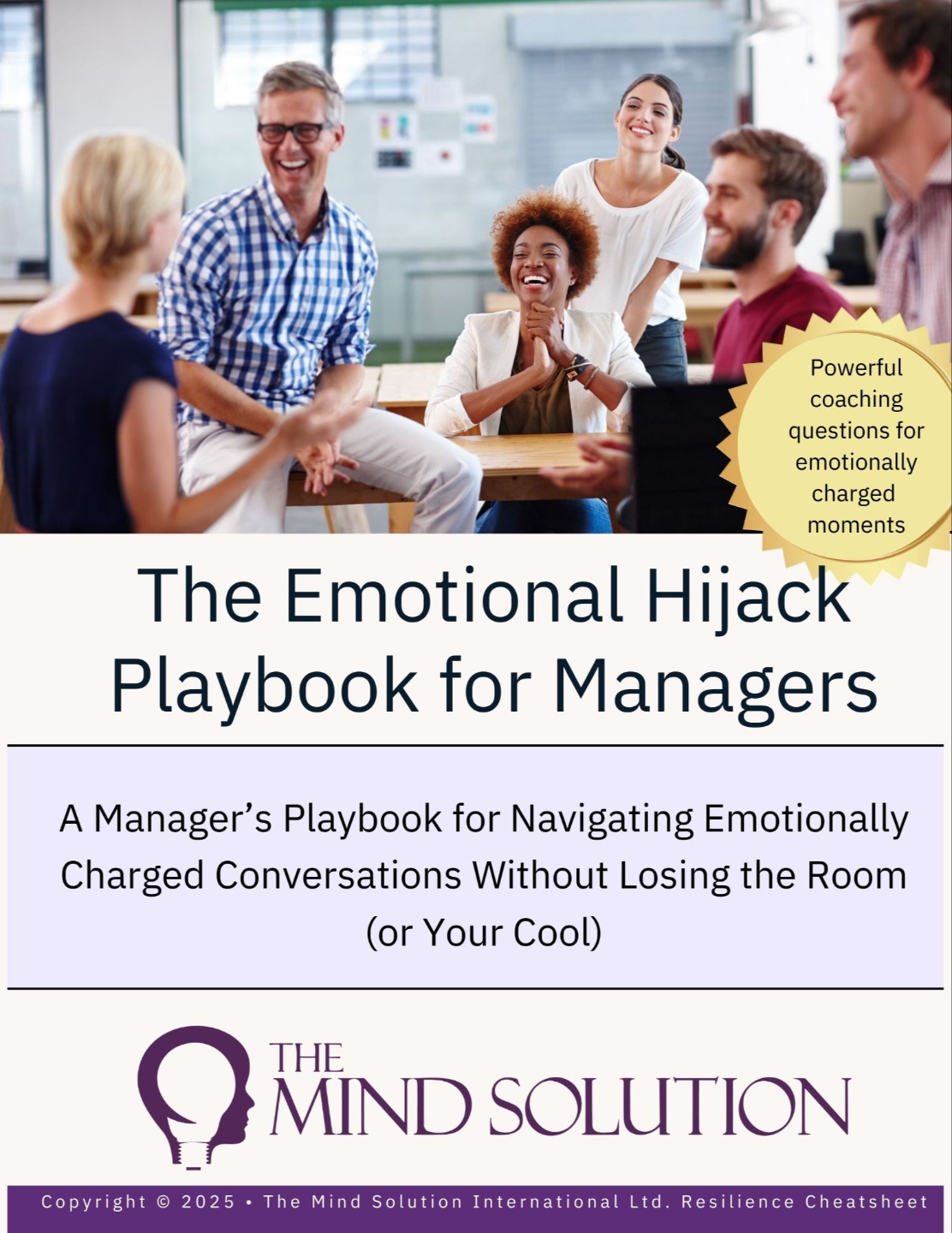Christmas and Emotional Landmines - How to Stop getting Blown Up
Nov 24, 2025
I know Christmas is still a month away (although I'm willing to guess the odd mince pie has made an appearance!), but when you finish reading this, you'll see why I've chosen to publish this blog now.
You see, one of the core elements we teach in our resilience training is the understanding of what's happening in the mind and body when we experience emotions and emotional hijacking. Given we are delivering this resilience training in the workplace, it's natural that we tend to stick to topics that everyone can relate to, such as leadership, team conflict or workload.
But there are those topics which can leave you feeling like you've stepped on an emotional landmine if you don't understand what's happening under the surface.
Christmas and Emotional Landmines
The truth is that the body is always trying to get what it wants, much like a two-year-old.
And what the body wants most is to remain in the familiar emotions of the past - even if that feels like hell to you.
The truth is, your body doesn't care that you're feeling anxious, lonely, worried, isolated, frustrated, or hurt.
I know that's a hard fact to swallow, but it's true.
Despite this, the body isn't some masochist. But what it has learnt, over years of conditioning, is one thing;
Familiar = Safe.
This is why you can feel like you're taking one step forward and two steps back at times when it comes to the way you feel, especially around certain topics - and Christmas can be one of them.
Especially if there's a lot of old, emotionally charged memories around the subject.
Why Christmas Can Be So Emotionally Charged
A topic like Christmas isn't a word - it's a neurochemical network.
Let's look at a few scenarios.....
- You're a divorced Dad who doesn't get to spend each Christmas with his kids, and that's painful.
- You have experienced the bereavement of a parent, friend, or Grandparent at Christmas, and this time of year activates those memories and emotions of grief, loss and sadness.
- You may have spent multiple Christmasses alone without anyone around you (hello - remember lockdown?), and don't know what your plans are going to be for this year, or whether you're facing another one alone.
- You're in your 4th year running of being single, and the idea of spending Christmas with you, your Mum and Dad when you're 39 is too much to bear (trust me, I totally get this one)
- You're in your first year of sobriety, and everywhere you look, people are getting pissed.
- Despite having people to share Christmas with, the dynamics within your family are tense, so you feel like you're walking on eggshells, or feeling like you're wearing a mask of 'fun'. When deep down you'd bloody love to be on your own with a bottle of Baileys and the TV remote to yourself.
How to Recognise What's Happening and Break The Cycle
If you resonate with this, you're absolutely not alone in feeling this way.
Here's what's actually happening in the brain and body...
1. The body has two activating triggers - cues from the environment, like social media posts, adverts on TV, aisles of food in the supermarket and even Christmas decorations.
The second are the internal cues from memory, subconscious patterning, thoughts, and beliefs.
2. The body anticipates the familiar feelings (sadness, grief, trapped, frustration, pain, separation, hurt, loneliness and so on).
3. The body signals the brain.
4. The brain produces thoughts that match the emotion.
I'm using the example of Christmas here, but the same can be said for any number of topics - money, relationships, work, children, parents, you name it. This is exactly how emotional conditioning works.
And this is why certain topics feel like emotional landmines.
The BIGGEST thing to be aware of is that the body is simply trying to return to what is known and familiar, because it's safe.
I know this sounds CRAZY because why would anyone want to feel pain, loneliness or anxiety around a specific topic?
This is simply neurobiology - but you don't have to let this hijack you.
The body is a survival machine, and survival machines choose the familiar, even if it is painful. The body knows it's felt these emotions before, and is still alive, so therefore it's labelled them as safe.
Safe = Familiar
Familiar = Predictable
Predictable = Survivable.
Create A New Emotional Response
You're awareness is the beginning of rewiring your response to these topics.
When emotions rise within you and you don't attach a story, and instead remain in the witness position, you are breaking the association between emotion and memory.
The mind will want to make the feelings mean something, to tell a story, but by resting in the awareness of what's happening in the body means the emotional storm will pass, and quickly.
While it may not seem like it in the moment, emotions are sensations in the body. We don't have to make them mean anything at all.
If you can stay with the emotions long enough without running from them, they will pass. As you remain with them and don't try to run or fix them, you're letting the body know you are safe. And you're taking back control.
I'd also invite you to take 3 deep conscious breaths as you're observing the body, letting the out breath become longer than the in breath.
That is healing.
That is teaching the body a new response and breaking the cycle.
The Emotional Hijack Playbook For Managers
A Manager’s Free Resource for Navigating Emotionally Charged Conversations Without Losing the Room (or Your Cool).
Perfect to use in your next one-to-one.






